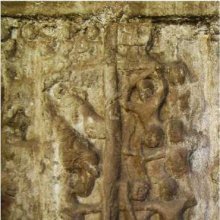Foot-soldier: 1 definition
Introduction:
Foot-soldier means something in Hinduism, Sanskrit. If you want to know the exact meaning, history, etymology or English translation of this term then check out the descriptions on this page. Add your comment or reference to a book if you want to contribute to this summary article.
Images (photo gallery)
In Hinduism
Yoga (school of philosophy)
Source: ORA: Amanaska (king of all yogas): A Critical Edition and Annotated Translation by Jason BirchFoot-soldier are denoted by the Sanskrit term Pādāta, according to the Amanaska Yoga treatise dealing with meditation, absorption, yogic powers and liberation.—Accordingly, as Īśvara says to Vāmadeva: “[...] [The Yogin], whose foot-soldiers (pādāta) are his quietened senses and who is endowed with [a successful king’s] powers [in the form of] his higher faculty of discernment, becomes joyful when he has conquered the hostile mind-king who is accompanied by his [royal] vehicle, the breath. [...]”.

Yoga is originally considered a branch of Hindu philosophy (astika), but both ancient and modern Yoga combine the physical, mental and spiritual. Yoga teaches various physical techniques also known as āsanas (postures), used for various purposes (eg., meditation, contemplation, relaxation).
See also (Relevant definitions)
Partial matches: Soldier, Foot.
Full-text (+115): Padati, Patti, Padata, Padat, Sharavani, Padaga, Patkashin, Padabhata, Padaji, Payika, Padika, Padacarin, Padga, Carin, Pattin, Kalapayaka, Kalupayaka, Kalbhamta, Padatimatra, Pyada.
Relevant text
Search found 49 books and stories containing Foot-soldier; (plurals include: soldiers). You can also click to the full overview containing English textual excerpts. Below are direct links for the most relevant articles:
Nitiprakasika (Critical Analysis) (by S. Anusha)
Mahabharata (English) (by Kisari Mohan Ganguli)
Manasara (English translation) (by Prasanna Kumar Acharya)
Trishashti Shalaka Purusha Caritra (by Helen M. Johnson)
Part 6: Birth of Cakrāyudha < [Chapter V - Twelfth incarnation as Śānti]
Part 2: Sāhasagati as a false Sugrīva < [Chapter VI - Bringing news of Sītā]
Part 4: Conquest of Prabhāsatīrtha by Bharata < [Chapter IV]
The Padma Purana (by N.A. Deshpande)
Chapter 211 - Caṇḍaka’s Fate < [Section 6 - Uttara-Khaṇḍa (Concluding Section)]
Chapter 10 - Rāma Appoints Śatrughna as the Protector of the Horse < [Section 5 - Pātāla-Khaṇḍa (Section on the Nether World)]
Chapter 5 - War Between Gods and Demons < [Section 6 - Uttara-Khaṇḍa (Concluding Section)]
Manusmriti with the Commentary of Medhatithi (by Ganganatha Jha)
Verse 12.100 < [Section XI - Supremacy of the Veda]
Verse 7.172 < [Section XII - Daily Routine of Work]
Verse 7.171 < [Section XII - Daily Routine of Work]
